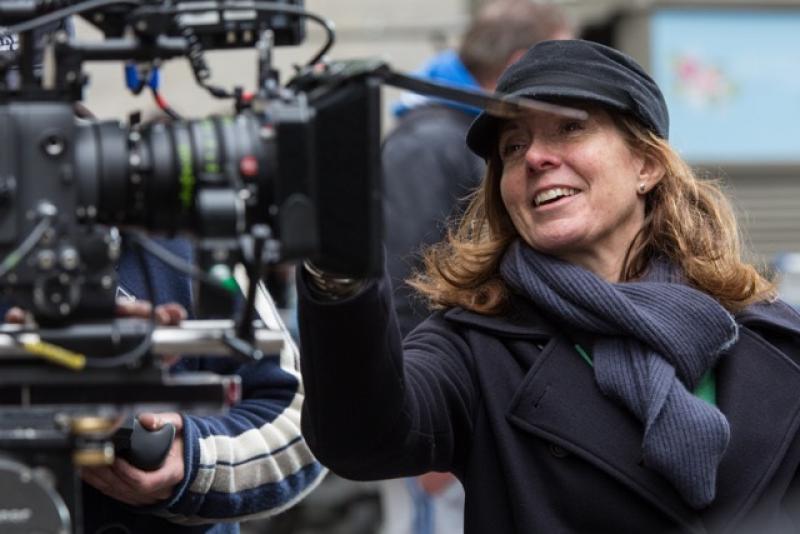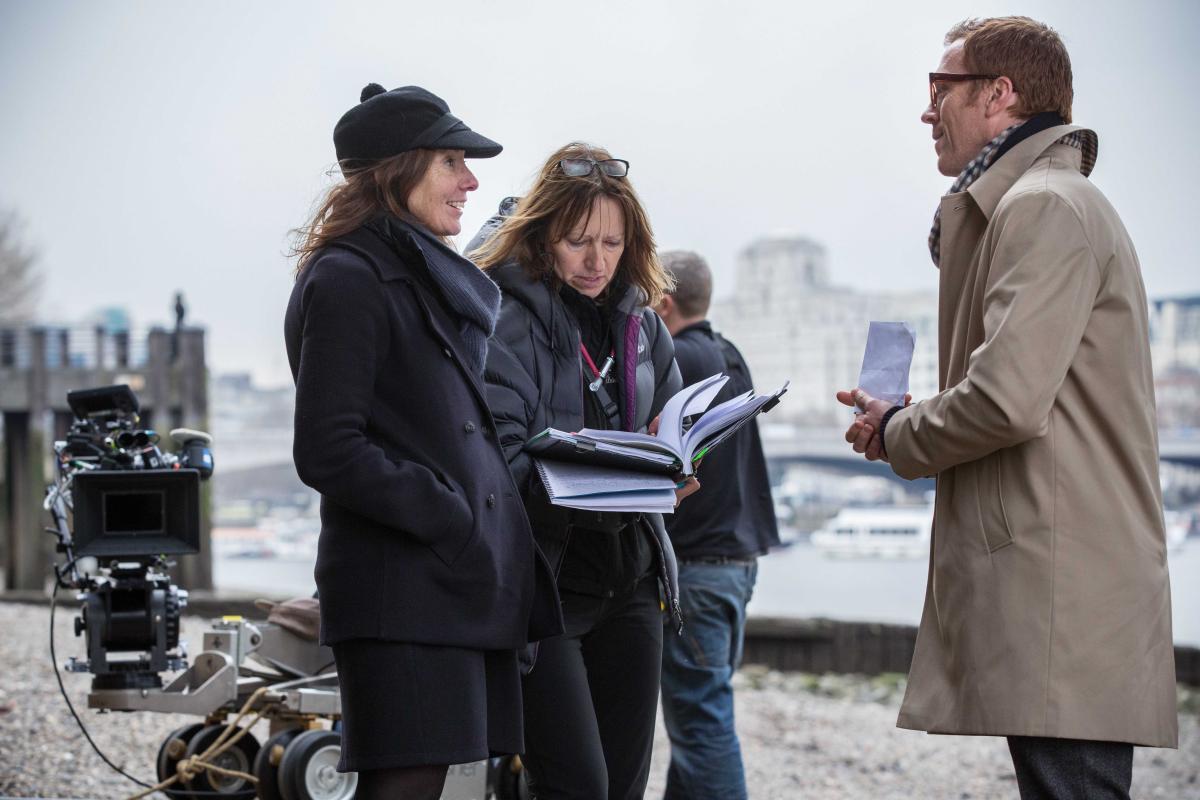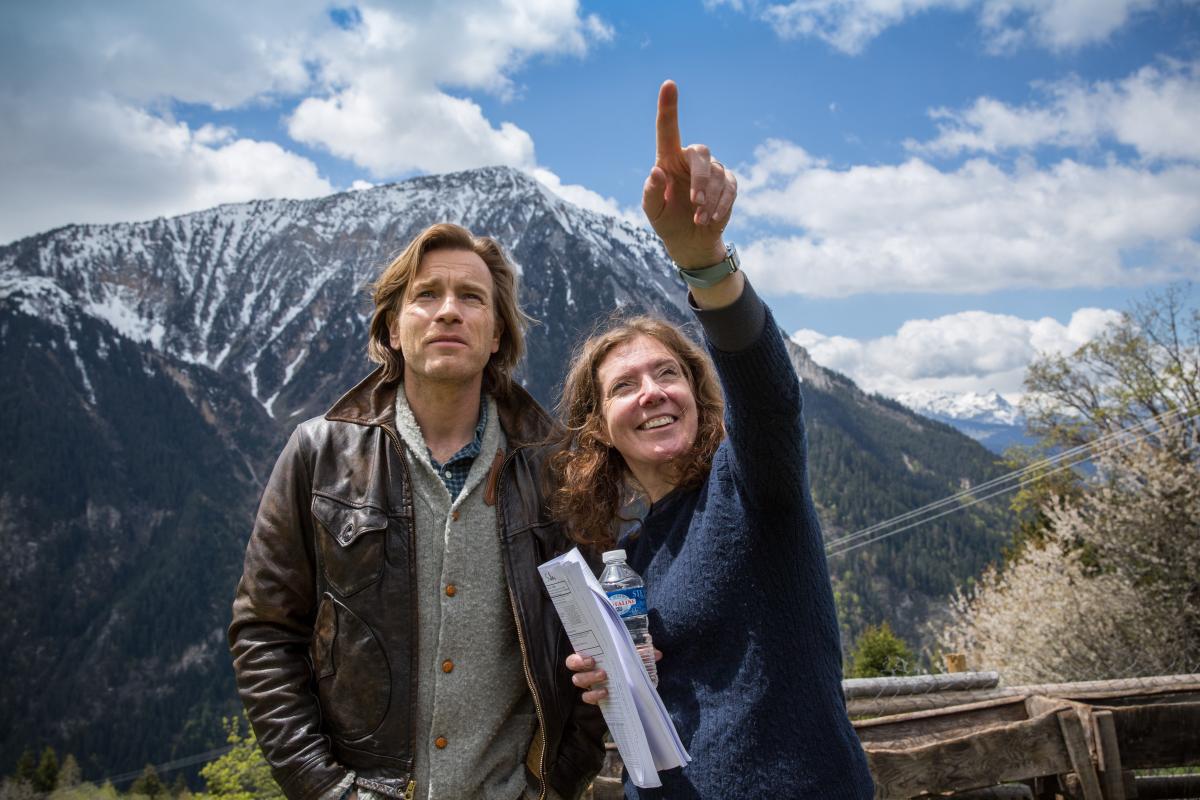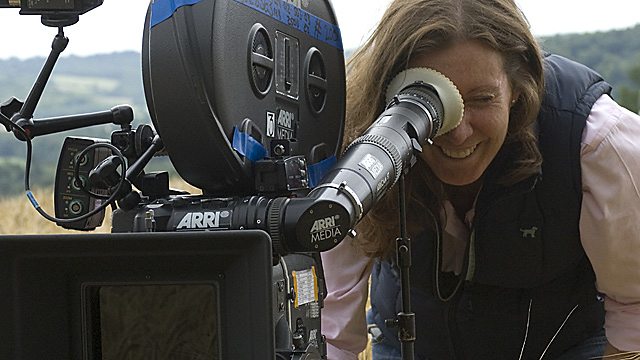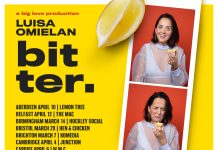SUSANNA WHITE
“It’s a bit depressing that I’m 55 and I’ve only managed to make two feature films”
After the roaring success of BBC One’s John le Carré adaption THE NIGHT MANAGER, fans of le Carré’s work and fans of the Tom Hiddleston series cried with joy when trailers touched down for British director Susanna White‘s latest adaptation of le Carré’s novel OUR KIND OF TRAITOR. Starring Ewan McGregor, Damian Lewis, Naomi Harris and Stellan Skarsgård, OUR KIND OF TRAITOR tells the story of a British couple who find themselves lured into the dark world of undercover corruption as they find themselves caught between the Russian Mafia and the British Secret Service.
Here at Film & TV Now, we sat down with Susanna White to hear all the details on her return to the big screen and heard the valued opinion on the status of female film makers after the shocking details in the latest Directors UK report on the lack of women in film. On a bright Sunday morning, we called Susanna at her home in London, eager to get to grips with her experience as a great woman in film. With an amazing body of work behind her, White has directed the likes of BLEAK HOUSE, JANE EYRE and MASTERS OF SEX, as well as her first feature film NANNY MCPHEE RETURNS.
With OUR KIND OF TRAITOR being White’s second full feature film, we were curious to know just how different it is working in features compared to working on television: “When you’re on the set it’s not very different. The differences are you have longer to plan things, you have an incredible calibre of people to work with. You really feel like you’re working with people at the top of their game, it’s the same with the cast but actually the process of doing my job isn’t that different”.
White continued: “I think the post production process is different because their are more voices to be heard in a feature film, there’s a lot riding on it financially and there’s a lot of people with different opinions so that’s where it’s most different. I guess film making is more a directors medium so you come under a bit more scrutiny, but in terms of doing the job it’s not really that different”.
Looking through the latest Director’s UK report on the state of input in film and television by women, we were shocked to see just how low the percentages were of female directors hired for certain television genres. Just 13% of drama episodes in 2011 and 2012 were directed by women, while it was just 8% for entertainment and comedy television. With such an impressive and varied background in television, we wondered just how frustrating it is for Susanna to read such depressing statistics:
“In a strange way I find it comforting because I’ve found, and this might sound very odd, my career has been quite tough because I went to film school in the 1980’s, I got a scholarship to go to the University of California, which is one of the best film schools in the world, I came back and found it really hard to get a job and break into television”.
White continued: “I worked in documentaries for ten years and still found it incredibly difficult to break into drama and then even though I’d gone off to have all the success of BLEAK HOUSE I still found it really hard to break into feature films. For a while I thought well maybe I’m not that good, maybe that’s why I’m not getting the opportunities, but then actually when I started to get the opportunities, I saw a pattern emerging and other women around me were in the same situation”.
“I realised it’s actually not me, it’s a subconscious gender bias that’s going on right now throughout the industry so I think what’s great is we’ve done this study, we’ve got the hard facts and complete outsiders are looking at it seeing that it really isn’t right that in 2016 there’s a situation like this when 50% of people wanting to become film directors are women and yet only 11% have made smaller features and just 3% when you get to the really big budget films are female directors. I think people have suddenly woken up to the situation and are challenging it and want to improve it”.
Despite this positive approach to worrying statistics, White obviously understands and feels the disappointment from this kind of attitude towards female filmmakers: “It’s a bit depressing that I’m 55 and I’ve only managed to make two feature films, despite having gone to one of the best film schools in the world”.
Being film lovers, we firmly believe that cinema is one of the greatest influences when we’re growing up and this begs the question: are we doing future generations a disservice by not investing in female talent? White addressed the matter: “Children’s films have very few positive female characters. The girls tend to be pretty, not very active girls with not many aspirations and I think if we have more women directing I think it will have an impact on who we see as role models. I think the more women that are directing films, the more impact it’s going to have on our culture”.
The director continued to comment on how she tries to impact this change in her own work: “It trickles down to tiny things also, on TRAITORS there are two scenes around boardroom tables and as the director I had a say on what extras featured in each scene and I said very clearly that when we’re shooting these scenes I want as many important people featured in those scenes to be played by women as well as men. I wanted women not just as secretaries but in suits making decisions”.
So does the director feel like the lack of female directors is ever going to change? “I really do feel we’re on the edge of some kind of change and people are taking note of it, not just in Britain, but around the world. I don’t think it’s anyone setting out to be deliberately sexist, there’s a lot of very complicated reasons why it happens but it’s a very anti-risk culture where people want to employ those with a great track record because they think they will be safe. I don’t think it’s society saying ‘we don’t want women’ but I think it’s something that’s happened that needs improving”.
While this is a subject White is obviously very knowledgeable about, she’s quick to ensure us that her own on-set experiences have been perfectly pleasant: “I have to really stress, I honestly can say I’ve never experienced any sexism on set. Crews are very receptive to having female directors, they’re very collaborative. Once I’ve got as far as the set, I’ve never had a problem. The problem has been getting the job in the first place”.
Looking to the future, the director mused on the latest surge of Superhero movies and questioned whether she’d like to dip her toes in the Marvel or DC universe: “I certainly like the challenge of big scale films so yeah, of course, as Orson Welles said ‘a film set is the best train set a boy could wish for’, I think it’s time for girls to be given the train set because we might move the tracks in a different way”.
To wrap up this wonderful interview with Susanna, we threw her a biggie – what would be her one key change for female filmmakers? Of course, she gave a suitably perfect answer: “More commissions. More people to take risks on women as they have done on a lot of men”. Isn’t that what we all want? For women to get the opportunities they deserve? That’s what feminism is, applied to this industry, it’s the chance for equal opportunities between men and women and that is a goal set firmly in our sights.
Speaking to Susanna was as enlightening and insightful as it was entertaining. Nothing beats hearing a director talk about a project they are so clearly proud of and love. Combine this with her wonderful knowledge and attitude towards female filmmakers, you make for one seriously impressive role model. White is clearly realistically hopeful for a change in the film industry, looking at tangible changes that can be made to ensure we see more women directors in film and television and she’s inspired us to do more to support women in film!


